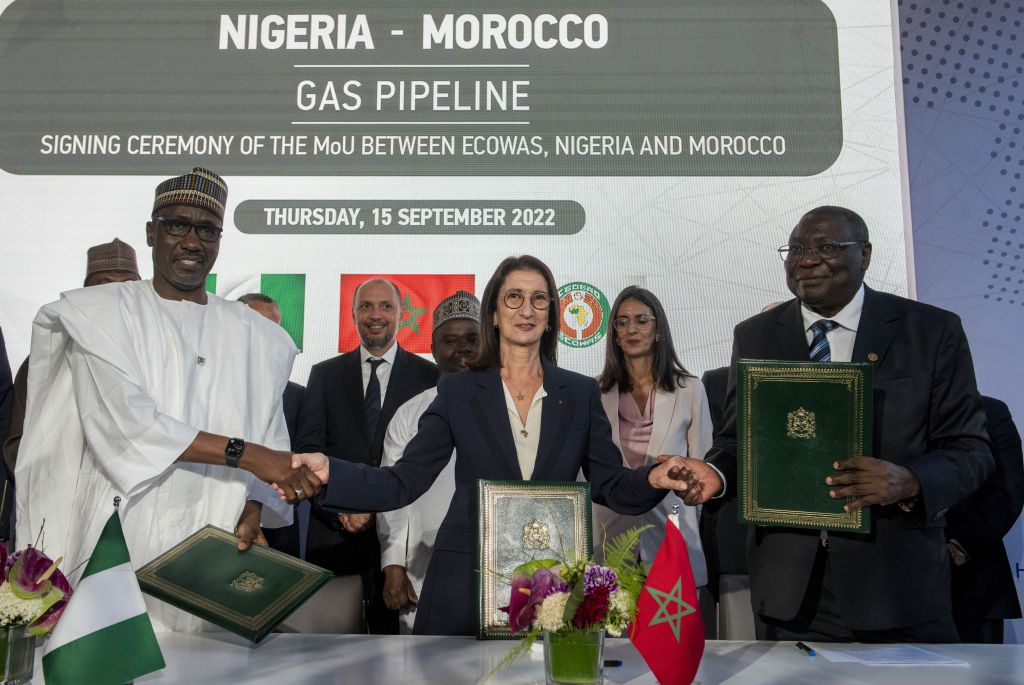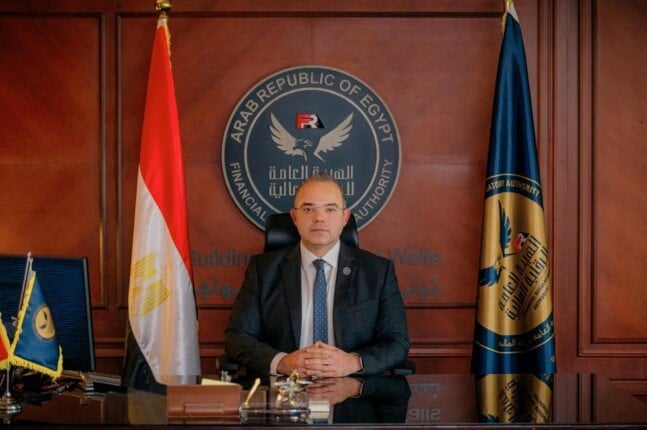
RABAT, MOROCO - SEPTEMBER 15: The General Director of the National Office of Hydrocarbons & Mines (ONHYM) of Morocco Amina Benkhadra (C), Representative of Economic Community of West African States (ECOWAS) Sediko Douka (R) and CEO of the Nigerian Petroleum Company (NNPC) Mallam Mele Kolo Kyari (L) shake hands after signing memorandum of understanding (MoU) for Morocco-Nigeria gas pipeline construction during signing ceremony in Rabat, Morocco on September 15, 2022. (Photo by Jalal Morchidi/Anadolu Agency via Getty Images)
The highly anticipated Nigeria-Morocco Gas Pipeline project is on the cusp of receiving its final institutional approval as the heads of state of the Economic Community of West African States (ECOWAS) prepare to sign off on the initiative.
This confirmation came from Amina Benkhadra, Director General of Morocco’s National Office of Hydrocarbons and Mines (ONHYM), during the 17th US-Africa Business Summit held in Luanda.
Stretching an impressive 6,900 kilometers, the pipeline promises to be a transformative energy artery connecting Nigeria to Morocco, with the ambition to secure natural gas supplies for 16 West African nations.
Beyond energy provision, the project aims to bolster industrial growth and social development across the region while playing a pivotal role in driving the West African energy transition.
Co-led by ONHYM and Nigeria’s National Petroleum Company (NNPC), the initiative also seeks to lay the groundwork for a more integrated electricity market across West Africa.
“The intergovernmental agreement has already been ratified by the energy ministers of the participating countries and approved by ECOWAS,” Benkhadra explained. She added that the pipeline’s implementation will be phased in, carefully aligned with the unique realities of each locale.
Morocco’s strategic geographic position and its exclusive free trade agreement with the United States—the only such agreement in Africa—position the country as a continental hub for integration.
Benkhadra highlighted Morocco’s commitment to expanding access to natural gas, emphasizing its role as a vital transitional energy source for Africa.
The summit underscored Morocco’s dedication to forging strategic, inclusive, and sustainable partnerships in the energy sector.
The Moroccan delegation in Luanda, led by Minister Delegate for Investment Karim Zidane, included representatives from ONHYM, AMDIE, ONCF, CGEM, MARSA Maroc, MEDZ, and major Moroccan banks.
Held under the theme “Pathways to Prosperity: A Shared Vision for U.S.-Africa Partnership,” the summit remains a crucial platform for reinforcing economic ties between Africa and the United States, showcasing shared ambitions for growth and collaboration across the continent.






